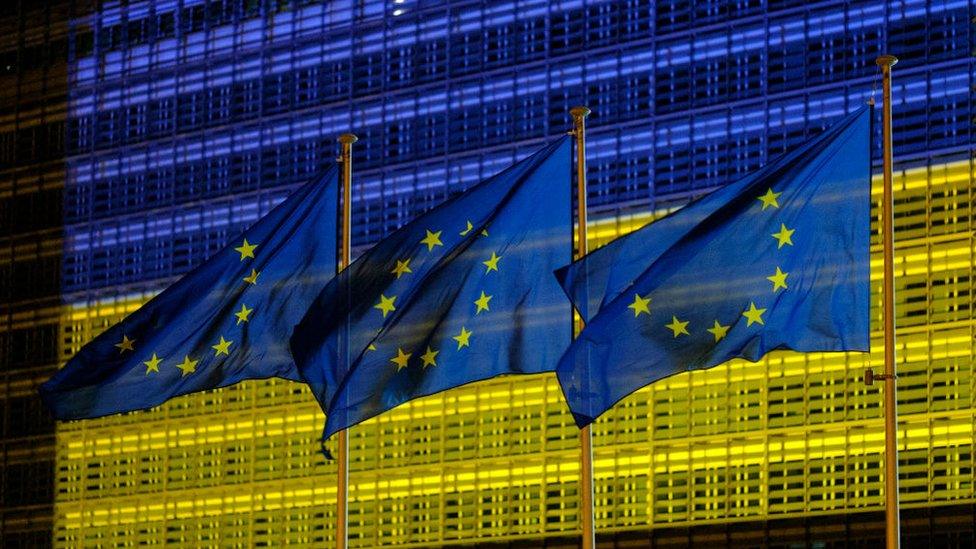UK's Truss joins Europe's leaders for big summit on Ukraine war
- Published
- comments
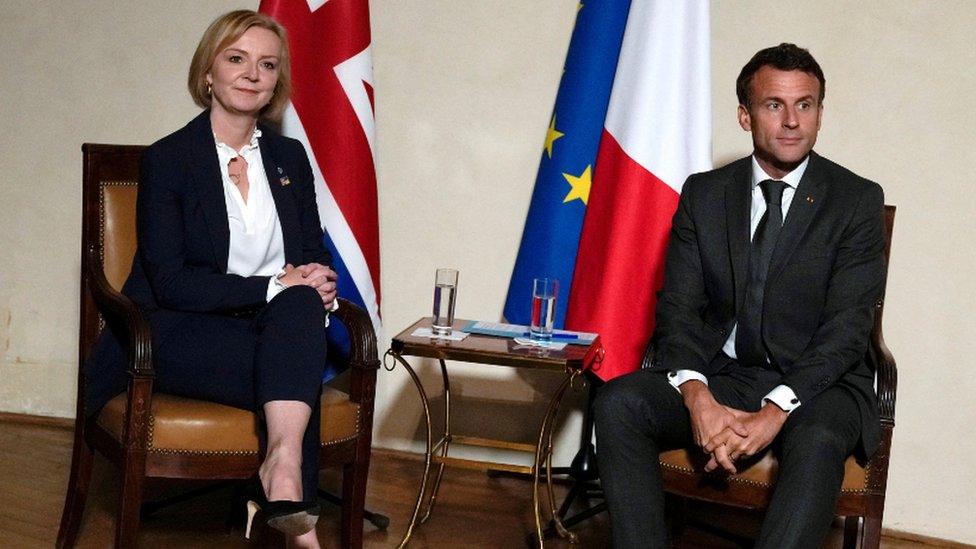
The gathering of European leaders from EU and non-EU states is the brainchild of France's Emmanuel Macron
The leaders of more than 40 European countries have met in Prague, at a historic first meeting of a new political forum of nations.
UK Prime Minister Liz Truss described France's Emmanuel Macron as a "friend" at the summit, having previously declined to say whether he was a "friend or foe".
Mr Macron spoke of building a "common strategy" on Russia's war in Ukraine.
Leaders from the EU, Turkey, Norway and the Balkans attended the meeting.
Ukraine's Volodymyr Zelensky spoke via video link, while Germany's chancellor said the gathering was a great innovation.
The summit, billed as a European Political Community beyond the EU, has been championed by Mr Macron, who told reporters on Thursday it sent a "message of unity".
But there has been scepticism, even within the EU, about the new forum with fears it could become a talking shop.
Ahead of the meeting, Ms Truss made clear it was "not an EU construct or an EU alternative".
She later told broadcasters the meeting was "not about moving closer to Europe" but "about working with Europe on issues that we both face".
Nevertheless, her decision to take part could mark a new phase in the UK's post-Brexit relations with Europe.
And the summit seems to have proved fruitful in terms of facilitating bilateral meetings for Ms Truss - announcing renewed plans with Mr Macron on "ending" small boat crossings on the Channel.
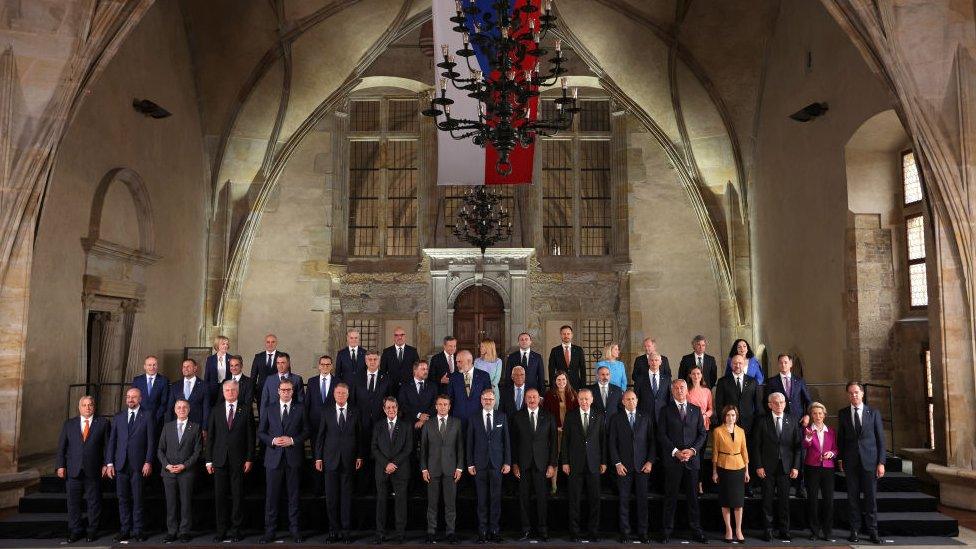
Among the European leaders taking part were Liz Truss (top left) and Turkey's Recep Tayyip Erdogan (bottom row, 7th from the right)
Leaders discussed energy, migration and security, with a particular focus on the war in Ukraine.
Ukraine's president told the summit, external: "You and I are now in a strong position to direct all the possible might of Europe to end the war and guarantee long-term peace for Ukraine, for Europe, for the world."
Following the meetings, Ms Truss said: "Leaders leave this summit with greater collective resolve to stand up to Russian aggression.
"What we have seen in Prague is a forceful show of solidarity with Ukraine, and for the principles of freedom and democracy."
EU foreign policy chief Josep Borrell said in a blog that in the wake of Russia's invasion, there was a need to "rethink and reform the wider European order, beyond the work of the EU and Nato", but he added that the summit would be no more than an initial exchange., external
As well as the UK, non-EU members Switzerland, Turkey, Norway, Iceland, Georgia, Azerbaijan and western Balkan countries took part in the first gathering of the EPC.
What is this new community?
Critics see it as a vague regurgitation of old ideas and its exact role has yet to be made clear.
When he proposed the idea this year, Mr Macron said it would "offer a platform for political co-ordination" for countries, both those in the EU and those not.
Russia's invasion of Ukraine gave new impetus for co-operation among nations beyond the EU's 27 member states.
But the EPC has no institutions or dedicated staff. That has led to questions about how any decisions would be implemented.
So it's an unprecedented effort to bring leaders together from across the continent to discuss areas of shared interest. If it proves to be a success, it may continue to take place up to twice a year. If it's a failure, it could fizzle out.
Ms Truss said Macron is a friend, Putin is the foe
Ms Truss had been hostile to the EPC project in the lead up to the meeting.
Some observers point out it was never likely she would voice passionate enthusiasm for a French-led European meet-up while vying for the Tory leadership.
But once in power, she appeared to warm to the idea, although Downing Street is reluctant to accept suggestions that Mr Macron won her over.
While a row about post-Brexit arrangements for Northern Ireland remains unresolved, talks are restarting this week.
Leaders meeting
The official line was that the PM was taking part because she wanted to "shore up" support for Ukraine and "galvanise" collective action on energy security and migration.
Another draw for the UK was the presence of Turkey's Recep Tayyip Erdogan, as well as the participation of Norway, a key supplier of energy to the UK.
The UK has been less keen to talk about security, with jitters that the EPC could be seen as somehow cutting across the Nato military alliance.
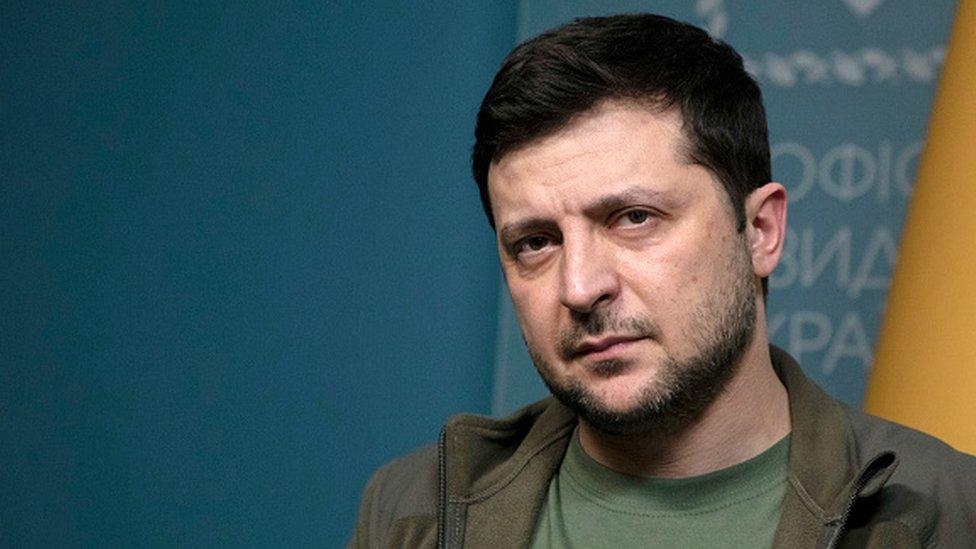
Ukrainian President Volodymyr Zelensky addressed the summit via video link
Uncertain identity
A sign of the uncertainty about what the EPC is really for is that there have been far clearer messages about what it is not.
It's not a substitute for Nato or the G7, we're told. It's not a slightly comfier "waiting room" for countries eager to join the EU. Nor it is a forum that will be dominated by EU institutions.
That's despite invites having been issued by the president of the European Council, Charles Michel, while the meeting itself has been tacked on to the front of an EU summit.
Brussels insists it has merely been facilitating the forum - it's not "the EU plus plus", insisted one senior official.
The next EPC, in either six months or a year's time, is expected to be held in Moldova.
If the project survives, the UK is currently fourth in line to host a summit. But British officials are keen to play it cool on the EPC, insisting they will walk away if it evolves in an undesirable direction.
- Published16 September 2022
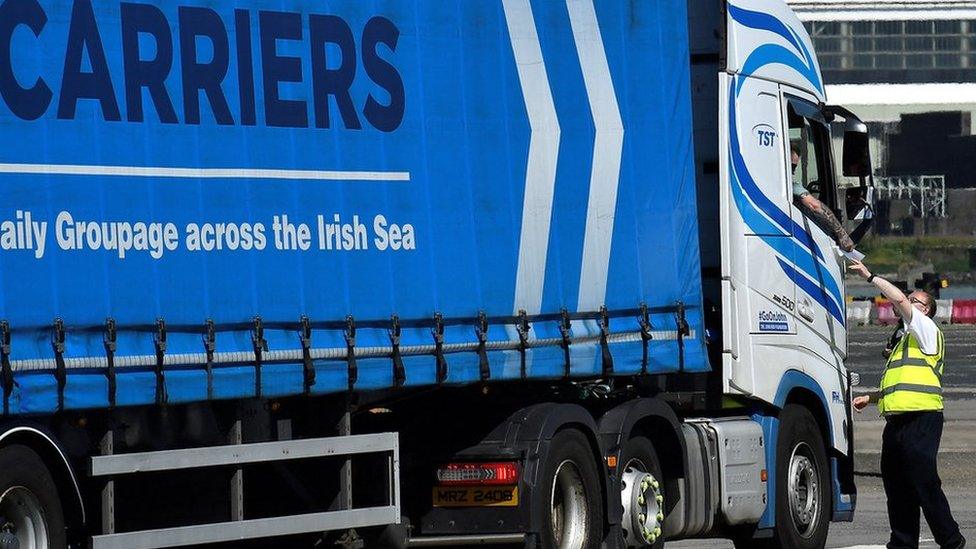
- Published20 September 2022
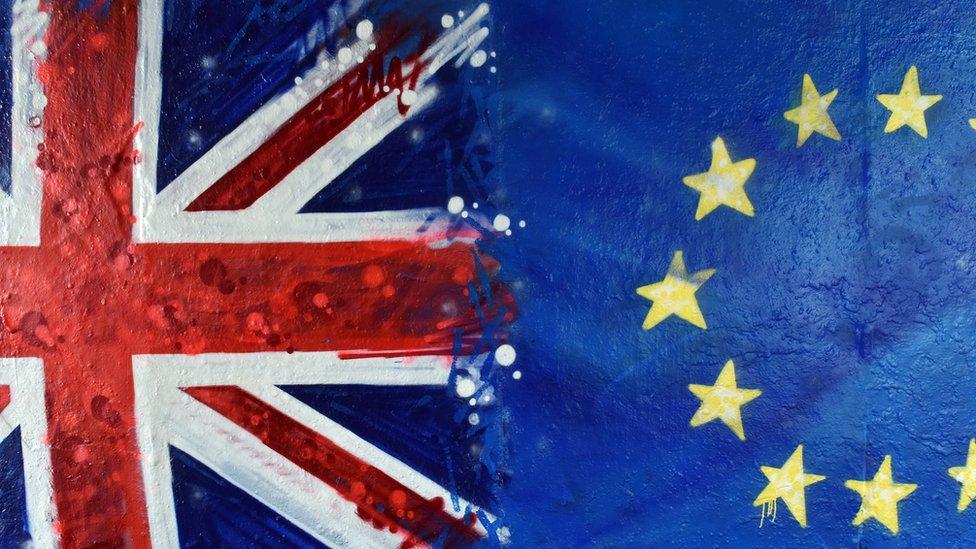
- Published24 June 2022
